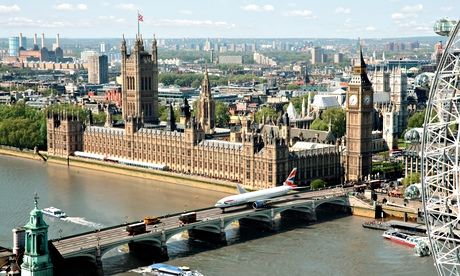
Tesco has been brought to its reputational knees after being hammered by declining sales, announcing a string of profit warnings, seeing investors including Warren Buffett bail out – not to mention the small matter of a £263m accounting black hole.
Over Christmas Dave Lewis, Tesco’s new chief executive, held brisk, clandestine talks with ad agency Bartle Bogle Hegarty to take on its £110m ad account. After 28 years at Unilever, home to brands including Dove, Pot Noodle and Ben & Jerrys, Lewis is banking on the agency behind work including Levi’s, British Airways and Lynx (another Unilever product) to help him advertise his way out of trouble.
But can a slick advertising strategy really rehabilitate the embattled retailer’s image and rebuild public trust?
“We are here to support Dave’s agenda, particularly in the area of strengthening the Tesco brand,” says Neil Munn, BBH’s chief executive, also a former Unilever veteran who has known Lewis for the best part of 20 years. “It is about building trust in Tesco’s brand, an important component in the strategy.” Munn says it is “too early” to talk about whether the famous “Every little helps” slogan might be scrapped – Tesco has used it since 1993. It will be at least three months until any work will appear as BBH has to work a notice period for Waitrose, which was unceremoniously dumped in favour of taking on Tesco. Lewis is augmenting the strategic advertising firepower of BBH by also appointing reputation consultants Blue Rubicon.
Richard Perks, director of retail at market research firm Mintel, believes Lewis shouldn’t set too much store by a shiny new ad campaign. “My feeling on the marketing front is that Tesco should be keeping reasonably quiet at the moment. I’ve never really been convinced about the power of advertising. Tesco is a great business, it is not a basket case. [Lewis] must effect real improvement in stores, in appearance, service, make sure they are running properly.”
Ed Williams, UK chief executive of PR company Edelman, argues that its research has shown that the issue Lewis faces boils down to trust. “The truth is there is no silver bullet of a single advertising campaign that will transform a brand’s reputation,” he says. “The challenge as Dave Lewis has set out at Tesco is multifaceted, but at its heart it’s an exercise in rebuilding trust in the brand. The job of communications and marketing is helping to bring that message to the public in a clear and compelling way. They see through a campaign that doesn’t ring true to their experience or what they know.”
So was there anything in particular in BBH’s previous campaigns that resonated with Lewis in his discussions about moving the advertising account? “Dave was very interested in the work we have done with British Airways,” says Munn. “This is [also] a business that has direct access to its clients and has a heavy online part to its business model. What [he is] seeking is an overarching idea that holds all parts of Tesco together.”
Rival retailer Marks & Spencer provides one example of a struggling business which used marketing and advertising to help turn round its fortunes. In 2004, M&S was suffering from falling sales and was facing a potential takeover by Philip Green. Stuart Rose was parachuted in as chief executive and introduced a new branding campaign, Your M&S, as a key part of the overall rescue plan.
The new branding – which Rose asked to also be designed for use at shareholder meetings and in corporate communications – and associated advertising campaigns were widely credited with underpinning a resurgence in the business.
“Businesses going downhill generally start pulling lots of different levers to try to get going in the right direction, including changing leadership, shifting pricing strategy, cutting cost base, reviewing future plans – all of which Tesco has done,” says Carlos Grande, a consultant at the Institute of Practitioners in Advertising. “The fact that Tesco has also decided to change its agency now suggests it believes that advertising is one of those levers it can pull to stop the decline.”
Some in the advertising industry (and not just those with sour grapes at not getting the chance to pitch for the retailer’s much-coveted account) have noted the irony that Tesco failed to run an open pitch process, although it was a lack of transparency and due diligence that helped land the company in its current predicament.
While the appointment could backfire, Suki Thompson, chief executive at management consultancy Oystercatchers, argues drastic times call for decisive decision-making. “Dave Lewis is making big things happen and he can’t afford to hang around waiting to make a difference,” she says. “In these exceptional circumstances selecting trusted partners without a pitch is the right thing to do. I think BBH and Blue Rubicon are exceptional and experienced in the sector.”
BBH certainly has the creative pedigree to pull off a turnaround for Tesco, and it is rumoured the agency could earn fees of £9m a year. “No, no, that’s not the reason [for taking the account],” says Munn, not entirely convincingly. “Tesco is a very significant creative opportunity, one of the most high-profile brand challenges and assignments.
“We like to be involved in those opportunities. What Tesco want to buy is our strategy and creativity across all parts of the customer journey.” And the money? “There are commercial considerations,” he says, skirting the issue with all the suavity you’d expect from a top adman: “Look, there is a fair exchange of value.”

